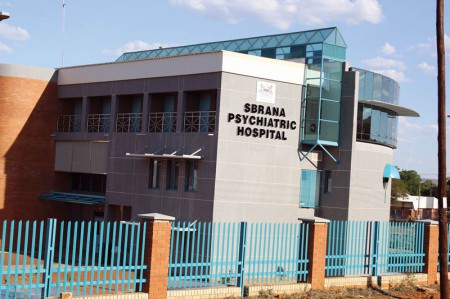To the brink and back
Tumelo Mouwane | Friday October 9, 2015 15:50


LOBATSE: A sombre, emotional atmosphere recently hung over the Sbrana Psychiatric Hospital in Lobatse.
Sbrana, now five-years-old, is a 300-bed modern facility, which operates as the country’s premier mental illness hospital and the national focal point for suicidal patients.
Within the crowds marking World Suicide Prevention Day, one woman stood quietly, meditating over her testimony.
Tshegofatso Kgomo is among many Batswana who have endured dark days of despair and found themselves – according to their thinking – left with only one choice, suicide.
She is, however, among the few who have been able to slip down to the abyss and return up the slope, a recovery she attributes to committed healthcare workers and counsellors who took every step with her.
Kgomo’s world came crashing down on her in May this year and by July she was ready to end it all.
“On May 16 my relationship went sour and my husband of 11 years ended our relationship,” she revealed.
“I never thought he would do this. Stress overpowered me. I couldn’t think properly because of the depression, which took me by storm.
“I lost confidence and felt really bad and dirty. I couldn’t recognise myself as a human being with dignity.
“I approached nurses and social workers in Sbrana as I realised that I was on the edge of committing suicide.”
Initially the counselling she received did not have effect and Kgomo made the fateful choice to end her life.
“I made a decision that on July 17, I would go to work, ask for a few chemicals consume them and end the terrible stress I was stuck in.
“I felt I was a burden to my family as they had always guided me in every move that I made at home.”
Mercifully, Kgomo did not join the swollen ranks of those who have lost the battle with depression.
“Nurses continued to give me further guidance and matters returned to normal. I realised that I was not being fair to my children and relatives who love me and still needed me.
“I can confidently say I am back to myself and I have regained my confidence and the worth in me.
“I would like to advise people out there that suicide is not a solution to any problem.” For many others, however, at this very moment, the troubles of life appear insurmountable. For people in this state, every solution has a crisis, every option is exhausted and every light is flickering.
Tired and feeling abandoned, these people meander helplessly towards suicide, which seems to offer sweet release and relief. The World Health Organisation (WHO) estimates that between 10 and 20 million people globally attempt suicide every year.
The trend is rising in Botswana.
According to Sbrana physical psychiatrist, Dr Chedza Frank-Hatitchki about 100 lives in Botswana have been lost due to suicide since January 2015. Sbrana has been admitting rising numbers of suicide-bound patients who in most cases arrive in very poor states.
In some instances, individuals are rescued from suicide but make fresh attempts after release from Sbrana, dealing a blow to the efforts to preserve life.
“Since January this year, 100 suicide instances have been recorded whilst 350 cases are recorded yearly in Botswana,” she said.
“Some cases are not reported which means it might be over 350 cases.
“Botswana is ranked number 147 in the world and marked on the red bar. This clearly shows that suicide has reached an alarming rate in our country and we must stand firm to fight it just like we fought HIV/AIDS because suicide affects everyone.”
For Sbrana chief medical officer, Dr Clifford Simpemba, suicide is a multi-faceted challenge with lasting consequences for individuals, families and the larger community.
“Suicide attempts lead to major injuries and sometimes permanent disabilities. People who attempt suicide at some point are double at risk of committing suicide later, than those who have never attempted it,” he said.
In Botswana, the leading causes of suicide, according to Simpemba, include mental illnesses, depression, substance abuse, drugs and alcohol.
“We advise people to try by all means to avoid access to the means of committing suicide,” the chief medical officer said.
